


Acupuncture Fertility Treatment
In around one-fifth of infertility cases, there’s no known cause. This is frustrating and distressing for these couples and, while many go on to have successful pregnancies with IVF and other technologies, there are many who choose to look at alternative therapies either instead of, or in conjunction with, traditional Western medical treatments.

Relation of Fertility on Age
Fertility is closely related to age in both women and men. The age of peak fertility for both genders is from their late teens to early thirties.

Men's Optimal Fertile Age
Men are usually at their peak fertility age in their early to mid-twenties. Research has shown that there is a definite reduction in fertility as men age, however, because this is not as universal as the link between age and fertility in women, this is not as well understood.

Women's Optimal Fertile Age
International standards have always assumed that women are in their reproductive years when aged between 15 and 44, and while medical technology has made it possible for some women to get pregnant in their late forties and even older, in general, these pregnancies rely on the use of donor eggs from much younger women.
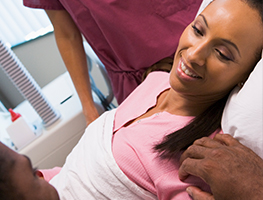
Choosing a Fertility Clinic
Fertility affects 30% of women on the African continent. It is estimated that 80 million people worldwide are infertile.
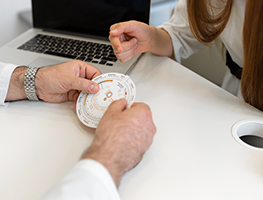
Women's Fertility Cycle
Fertility awareness – that is, having a good understanding of your own fertility cycle – can make a significant difference to the amount of time it takes a couple to get pregnant.

Fertility Information
There are various factors that can affect fertility in both men and women, including certain lifestyle factors and health issues, among other causes. While women are more fertile during different periods of their menstrual cycle, men can also be more virile at different times of the month. Huggies® can help you better understand female and male fertility and ways you can improve your fertility as well as the success of conception.

Guide to fertility monitors
If you are trying to fall pregnant and are looking to optimise your chances, you should employ the use of a fertility monitor.
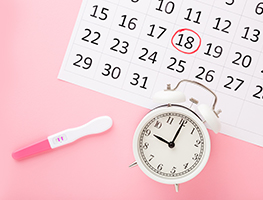
How to use a fertility monitor
If you’re trying to fall pregnant, getting as much information about your own ovulation cycle and identifying those critical fertile days can really help you pinpoint the most likely days for you to conceive.

What is the Fertility Rate?
The fertility rate refers to the average number of children that are born to a woman, who is a member of a particular demographic population, during her reproductive years (internationally these are nominated as the ages between 15 and 44).

Types of Fertility Tests
It is said that 8–14% of couples struggle with infertility, i.e. they have been trying for over a year with no resulting pregnancy. Approximately 1000 couples per year seek treatment at infertility clinics, the biggest of which is the Grootte Schuur Hospital Infertility Clinic.

Fertility treatment
If you and your partner are both under 35 and have no known health problems related to fertility, most medical professionals will suggest that you try to conceive for twelve months on your own before you even consider fertility treatment.

How to Increase Fertility in Men
Both male and female fertility rely on a delicate balance of hormones, which can be influenced by environmental factors ranging from the food you eat to toxins in the environment, stress and other emotional factors, illness and physical activity.

Natural ways to help increase fertility
Both male and female fertility rely on a delicate balance of hormones, which can be influenced by environmental factors ranging from the food you eat to toxins in the environment, stress and other emotional factors, illness and physical activity.

Natural Fertility Information
There’s plenty of solid scientific evidence that suggests your fertility is strongly influenced by your lifestyle (what you eat, what you do, your environment and how you live).

Conception After Ovulating
So you’re pretty sure you’ve ovulated, and you did your best to get pregnant – what now?
The waiting time after ovulation until you are able to either take a pregnancy test or experience menstruation can be agonising, particularly if you have been trying to get pregnant for a while. In the ‘average’ 28-day cycle, menstruation occurs on Day 1 and ovulation occurs after this at around Day 14.
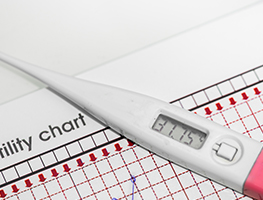
Basal Body Temperature Chart
Measuring your body’s temperature on a regular basis may help you to know when you are about to ovulate. Usually there is a drop in temperature just before ovulation and a sudden rise afterwards, but knowing this is what happens and doing something about it are two different things entirely.
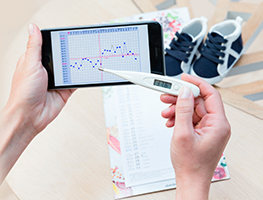
Calculate Your Ovulation
It can be very helpful for women to know when they are likely to ovulate. As a means of building more awareness of how their body works or as a tool to help maximise the chances of conceiving, becoming ovulation aware is a good skill to have. After all, over the course of a woman’s reproductive lifetime, ovulation can occur as many as 460 times, so there is plenty of opportunity to practice

What Happens On Ovulation Days?
If you’re planning to get pregnant, it’s time to start identifying the ovulation day in your cycle. Your chances of getting pregnant are much higher if you make sure that you have sex in the days leading up to that critical ovulation day, so identifying that particular moment is pretty important.
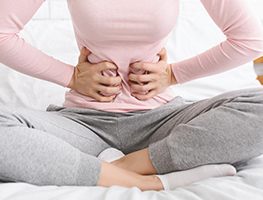
Ovulation Pain and Symptoms
Around one in five women experience a noticeable pain every month at the time of ovulation – and about half of all women are thought to have experienced ovulation pain at least once.

Ovulation Predictor Kits
Ovulation prediction kits are now widely available and reasonably inexpensive, so they have become popular with many women planning for conception and pregnancy.
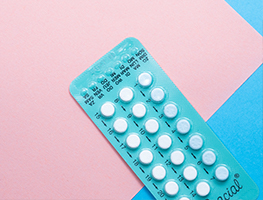
What Are The Ovulation Symptoms?
Once you start paying attention to your body, it’s amazing how many hints it delivers about the various stages in your cycle – and ovulation symptoms are often quite noticeable and easy to detect once you know what to look for.

Temperature Increase During Ovulation
One of the most significant indicators of the time of ovulation during your usual cycle is the ovulation temperature. At the time of ovulation, your basal body temperature (BBT) will rise – and it will stay a little higher until menstruation.
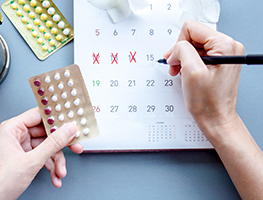
Ovulation Test Types
There are a number of ovulation tests, which will give you a good indication of whether or not you have ovulated, and – if you have – when this is likely to have occurred. Recent advances in medical technology have made the ovulation test an easily accessible and relatively cheap option.

The Ovulation Cycle Lengths & Phases
If you’re planning to get pregnant, one thing that will really help you is having a good understanding of your ovulation cycle.

Pregnancy Quiz: Am I Pregnant?
If you’re starting to wonder ‘Am I pregnant?’, then the best way to be sure is by doing a pregnancy test at around the time that your period would normally be due. But if you’ve got a niggling suspicion you might be pregnant – but no way of getting hold of a test for a while (or perhaps it’s still a bit early to do a test), try our fun ‘Am I Pregnant’ quiz. You can check some of those common early signs that make you wonder and see how you stack up!

How to Test Pregnancy at Home
For many years, home pregnancy tests have been most women’s first choice to confirm their suspicion they might be pregnant. Home pregnancy tests are inexpensive, disposable kits available over-the-counter from most pharmacies and they can also be purchased online.

How Many Weeks Pregnant Am I
Congratulations, you think (or know) you’re pregnant! But it’s quite confusing when you try to work out how many weeks pregnant you are

Negative Pregnancy Test: What to Do Next
So, you’ve got a negative pregnancy test result. If you’re hoping to have a baby, it’s a real let-down. Does a negative pregnancy test mean that you are not pregnant? The answer is – it depends. Maybe you did the test too early or the test might be faulty.

How to Deal with a Phantom Pregnancy
One of the more unusual conditions that can occur in women is to have a phantom pregnancy. This is a rare condition and is known formally as pseudocyesis or false pregnancy. Pseudocyesis comes from the Greek language – pseudes meaning false and kyesis meaning pregnancy. In men it is known more frequently as a sympathetic pregnancy or by its official title of couvade syndrome. This is more common in particularly sensitive men who, when their wives or daughters are pregnant, experience similar symptoms as they do. Weight gain, vague aches and pains, abdominal swelling and moodiness are common symptoms of couvade syndrome.

Next Steps After a Positive Pregnancy Test
Those five minutes between taking a pregnancytest and finding the result can feel like the longest five minutes of your life. And when you see the result and realise that you are holding a positive pregnancy test, it often seems a bit like a dream!

Causes of Spotting Before Your Period
Spotting is any light vaginal bleeding that occurs at any time other than when a period is due. Spotting between periods is reasonably common. There can be a few reasons why it happens but the most common are hormonal changes and it being due to an implantation bleed. This is what can happen when the newly formed embryo nestles and embeds into the blood thickened lining of the womb.

What to Do During the Two Week Wait
The two weeks between ovulation and when a period is due can seem, for many women, to last an eternity. Especially for those who are trying to conceive and are desperate to have their pregnancy confirmed. But the two-week wait to either have a period or have a pregnancy confirmed can also generate feelings of anxiety and apprehension for women who are just as keen not to have a baby.

Best Sex Positions To Get Pregnant
When you’re trying to conceive, it is worth giving anything a go that you think will boost your chances. But it pays to bear in mind that the human race has been around for over 200,000 years and most of us were probably conceived without our ancestors investing too much thought into the mechanics.

When is the Best Time to Get Pregnant?
Getting pregnant is all about timing. Having sex as close as possible to the moment of ovulation (when an egg is released from your ovaries) is the best time to get pregnant and will give you the best chance of a successful conception.

Chances of Getting Pregnant with Age
For a healthy, fertile couple where both partners are under the age of 35, the chance of getting pregnant straight away is actually pretty low – it’s estimated at around 25 % per month, if you have regular unprotected sex around the time of ovulation.

Endometriosis and Pregnancy
Endometriosis is a relatively common condition in women, but it is still not fully understood. During normal menstruation, the endometrial lining of the uterus (womb) builds up and is shed each month. Ideally, this lining is restricted to the womb but it can also grow in other areas of the pelvis. Growths of endometrial lining can appear on the ovaries, bowel, bladder, cervix and vagina as well as the fallopian tubes. It can affect up to 60% of women who complain of painful periods (dysmenorrhoea). Up to half of women who are diagnosed with endometriosis have trouble falling pregnant.
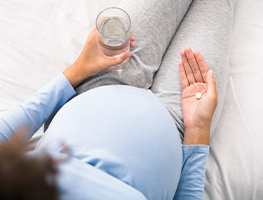
Benefits of Taking Folic Acid During Pregnancy
All pregnant women are advised to take folic acid supplements for at least one month before conceiving and for the first three months of their pregnancy. This mineral is essential for the healthy development of the neural tube.

How to Get Pregnant Fast
There are all sorts of reasons why women may want to get pregnant faster. Some plan for their baby to be born within a particular ‘window’ of time, or work towards their children being separated by an age preferred space of time. Couples who don’t have the option of being together all the time may also need to plan conception more carefully.

How to Get Pregnant After Ovulation
Getting pregnant can certainly seem like a simple process. But it’s fair to say that behind the scenes, there’s a lot of activity, which needs to occur in order for it to happen. The first requirement is ovulation, when an egg, preferably a healthy one, is matured and ready to be fertilised by an equally healthy sperm. If the egg is not present, is immature or past its use by date, then fertilisation won’t occur.

Tips to Get Pregnant
Your biological alarm clock has gone off, so now you’re tracking your menstrual cycle, maybe you’ve had a preliminary check-up with your doctor and you might even secretly be buying baby magazines!

Getting Pregnant With PCOS
Polycystic Ovarian Syndrome, commonly known as PCOS, is a chronic hormonal condition, which affects a woman’s reproductive cycles. It can impact a woman’s fertility, her menstruation, weight maintenance, appearance and even her body’s insulin production.

Having Trouble Getting Pregnant
Some couples are able to conceive their baby without too much trying at all. In fact, many say they can’t work out exactly how and when conception could have happened for them. And although it doesn’t take too much imagination to connect the actual mechanics of conception, sometimes it’s the opportunity that simply slipped our minds. Busy lifestyles, work commitments and constant juggling of time means that getting together and actually having sex is often pushed down on our list of priorities.

How to Conceive a Baby Boy
Some couples are almost desperate to conceive a baby of one particular gender. Fathers, especially, can be eager to have a boy, but there are also mothers who long for a son. Most couples however, are happy with either a boy or a girl, as long as their baby is healthy and strong.

How to conceive a girl
Are you longing for a girl? Do you already have a one boy or more and now want to see if you can tip the gender balance in your household? There are lots of theories and claims made about influencing the chances of having either a boy or a girl baby, but the scientific facts are absolutely clear. The chances of having a boy or a girl are almost exactly equal for each and every pregnancy. Even though some couples only seem to make boys, or girls, this patterning owes more to luck and coincidence than management.

How Can You Get Pregnant?
Today we know a lot more about the importance of pre-conception care, and are aware that careful planning can have a positive impact on the health of the couple and their baby, both while in the womb and throughout life.

Planning to Get Pregnant Tips
Here is a guide to help you plan for your pregnancy physically, financially and emotionally.

Dr Shettles Method and Baby Gender
Most couples are aware of strategies they can try to sway their odds of having a boy or a girl. And for all sorts of reasons, having a baby of a preferred gender can be enough to motivate them to try their luck. But, although the Shettles Method offers a 70-90% chance of conceiving a baby of the preferred gender, it does not really take into account the individual factors, which so strongly influence whether a baby boy or a girl will be conceived. Luck is certainly a factor in the Shettles Method.
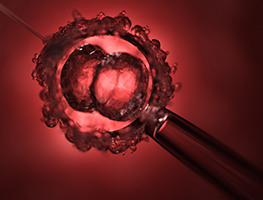
Embryo Transfer & Freezing
Embryo transfer is the next step in the IVF (In Vitro Fertilisation) or ART (Assisted Reproductive Technology), process. Generally, embryo transfer is done 48 hours after the egg has been fertilised by the sperm. At this point, cell division is already occurring and there will be a minimum of four cells visible within the embryo when it is examined under the microscope.

IVF Embryo-Blastocyst
After so much preparation and hard work, this is the key event, which every person going through IVF treatment hopes will go well. It is usual practice for the male partner to have produced a sample of sperm beforehand, which has been frozen in readiness.
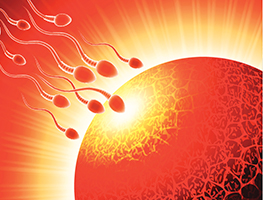
Sperm Donation
It is estimated that when a couple is having trouble conceiving, four out of ten times it is because of the man not producing or delivering sperm. Some men produce very few, or no sperm at all, or the sperm they do produce are abnormal. This makes sperm donation the only option for couples who are keen to have a baby.








